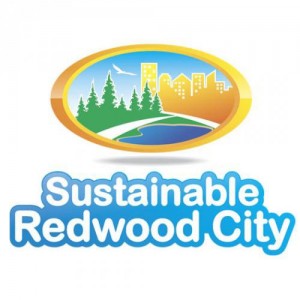 When proposing sustainability policies within a city, housing may not be the first area that comes to mind. But Sustainable Redwood City is campaigning to find solutions for “effective housing,” citing statistics that the city draws roughly 40 thousand commuters each day because of its lack of available housing.
When proposing sustainability policies within a city, housing may not be the first area that comes to mind. But Sustainable Redwood City is campaigning to find solutions for “effective housing,” citing statistics that the city draws roughly 40 thousand commuters each day because of its lack of available housing.
That’s how Lou Covey, a lifelong Bay Area resident, defines sustainable: embracing policy not related to biodegradable materials or banning plastic bags, but working to shape the community from the ground up. To cut commuter pollution and an abundance of waste, Covey is using his group to lobby the city council and residential communities to find new areas for affordable housing.
“A lot of people use the term ‘affordable housing,’ but we’ve come up with a term that we think is more effective,” Covery said. “We’re just not lacking in low-income housing in Redwood City, we’re lacking in all kinds of housing.”
When an out-of-state development firm proposed a number of years ago to build on the Cargill Land, known as the “Saltworks Project,” the community rallied to oppose the construction. Covey’s passion for exploring the environmental issues surrounding the Saltworks proposal gave him an outlet to engage community members on broader sustainable policies.
Covey formed Sustainable Redwood City, an informal community group, five years ago. According to Covey, most traditional sustainability (waste, pollution, traffic) issues in Redwood City can be traced back to a housing deficiency. As a result, he typically comes down on the pro-development side.
“We actually used the word sustainable without realizing it was a buzzword that was developing,” Covey said of the group’s five-year history. “What’s sustainable for San Francisco is not necessarily sustainable for Redwood City; every community has got to look at themselves and their resources.”
Though the city is approving many development projects, such as the One Marina housing complexes and the controversial Pete’s Harbor development, both of these increase the number of luxury units available in the city. One Marina’s townhomes range from $558,000 $793,000.
“Redwood City is somewhat cheaper than many other Peninsula cities and towns to live in, but for the average folks who actually live here, the rent is way too high,” resident James Lee commented on a recent Patch article.
Covey, found his passion for sustainability while writing a series on environmentally friendly energy sources while studying at San Jose State University. He works full time as a public relations specialist at his own firm, Footwasher Media.
He also cited issues of flooding near his own home in Friendly Acres, a residential community near the Marsh Road exit on the 101 freeway, as an impetus for involvement. The flooding was ultimately resolved by construction of a water basin and public park.
“This kind of development not only deals with the flooding, it also brings in parks, mass transit, all these things that make a modern sustainable community,” he said. “Even more importantly, the project” and park “bring in tax revenue without raising taxes.
“To increase revenues, you have to have more people come in.”
But Covey’s group has recently made news for other reasons: it announced it would be forfeiting its non-profit status, hindering its impact to lobby at a pivotal time. He sees his group as especially relevant as state lawmakers consider a ban on plastic bag usage throughout California.
Instead, he is modeling his group to mimic his public relations company: as a facilitator of information and a catalyst for others’ action.
“We’re going to be strictly grassroots,” he said. “This is not a money making enterprise…I care about my community, and I want to keep going, but I want to eliminate the issue of money.
The whole thing about money in politics really affects me — we don’t need to have government take money out of politics, we can take money out period.”
Covey is confident de-incorporation will not spell death for Sustainable Redwood City. “Facebook is a great way of distributing our message. We say, ‘if you like the page, then you’re a member.’” Membership is currently 97 with a social reach of 20 thousand people, Covey said. “It’s so cool.”
Sustainable Redwood City hopes to organize neighborhood meetings to address community-specific issues, including gun safety and noise-related problems.
“That’s what Redwood City needs to be sustainable, it needs an open forum,” he said. “There are so many rules for nonprofits about what they can and can’t allow, and now we don’t have those restrictions.
“This whole move has made everything so much easier for what we do and we expect in the next year to have lots more ideas.”
